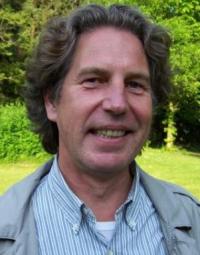
Institut für Ethnologie der Universität Heidelberg
Sandgasse 7, D -69117 Heidelberg
Tel.: +49 (0)69 / 798-33070 oder +49 (0)6221 / 54-3946
Email: [email protected]
My university website.
List of Publications: Click here...
My project as a poster.
Agama or Adat? Multi-religious rituals in central Indonesia
The globalization of the Western concept of modernity goes hand in hand with the expansion of a specific concept of religion. According to this concept, religion and the state are separate entities, with religious faith being a private matter of each individual. Moreover, modernity’s understanding of religion is a monotheistic religion that refers to scriptural canon and is associated with a profession of faith. The republic of Indonesia provides a good example of the globalization of this Western concept of modern religion within a modern state. The only officially recognized religious communities are those that appear monotheistic and can prove a revealed scripture. All other belief systems in Indonesia are labeled pre-religious (belem agama) or customary (adat).
In recent modern times, the application of this Western concept of religion implies putting other religious belief systems under pressure and questioning local ritual practices. Such rituals rest on beliefs that predate Christian and Muslim expansion into expansion into the Indonesian archipelago and can be broadly defined as being orthopractic, syncretistic, multi-religious and ecumenical. It goes without saying that such ritual practices are neither compatible with the Western concept of modern religion in a modern state, nor with a fundamentalist interpretation of Christianitiy or Islam.
The two sub-projects based in Indonesia focus on the following questions:
1) How do local communities in central Indonesia preserve multi-religious or ecumenical ritual practices in light of the globalization of a Western concept of religion?
To answer this question, research will be carried out at the Lingsar festival and other multi-religious events in Lombok which are not only attended by the Muslim Sasek but also by Balinese who confess to a local form of Hinduism. Detailed attention will be given to researching how the mounting pressures of modernization affect the implementation of this festival and the relationship between involved groups.
2) Are there possible approaches to revitalizing local variations of Hinduism in present-day Bali? This question will be examined in relation to to politically motivated, modern forms of Hinduism. How do local variations of Hinduism position themselves against modern ones? Which social groups in Bali and India play a dominant role?
The results of these two research projects will build on one another and be comparatively analyzed.
